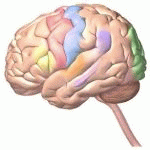Neurology
|
30 july 2015 13:50:10 |
| Early statin use in ischemic stroke patients treated with recanalization therapy: retrospective observational study (BMC Neurology) |
|
Tweet Background:
We aimed to determine whether early statin use following recanalization therapy improves the functional outcome of ischemic stroke.
Methods:
Using a prospective stroke registry database, we identified a consecutive 337 patients within 6 h of onset who had symptomatic stenosis or occlusion of major cerebral arteries and received recanalization therapy. Based on commencement of statin therapy, patients were categorized into administration on the first (D1, 13.4 %), second (D2, 20.8 %) and third day or later (D ≥ 3, 15.4 %) after recanalization therapy, and no use (NU, 50.4 %). The primary efficacy outcome was a 3-month modified Rankin Scale score of 0–1, and the secondary outcomes were neurologic improvement, neurologic deterioration and symptomatic hemorrhagic transformation during hospitalization.
Results:
Earlier use of statin was associated with a better primary outcome in a dose-response relationship (P for trend = 0.01) independent of premorbid statin use, stroke history, atrial fibrillation, stroke subtype, calendar year, and methods of recanalization therapy. The odds of a better primary outcome increased in D1 compared to NU (adjusted odds ratio, 2.96; 95 % confidence interval, 1.19–7.37). Earlier statin use was significantly associated with less neurologic deterioration and symptomatic hemorrhagic transformation in bivariate analyses but not in multivariable analyses. Interaction analysis revealed that the effect of early statin use was not altered by stroke subtype and recanalization modality (P for interaction = 0.97 and 0.26, respectively).
Conclusion:
Early statin use after recanalization therapy in ischemic stroke may improve the likelihood of a better functional outcome without increasing the risk of intracranial hemorrhage. |
| 138 viewsCategory: Neurology |
 Spinal cord hemorrhage in a patient with neurosarcoidosis on long-term corticosteroid therapy: case report (BMC Neurology) Spinal cord hemorrhage in a patient with neurosarcoidosis on long-term corticosteroid therapy: case report (BMC Neurology)T1- vs. T2-based MRI measures of spinal cord volume in healthy subjects and patients with multiple sclerosis (BMC Neurology) 
|
| blog comments powered by Disqus |
MyJournals.org
The latest issues of all your favorite science journals on one page
The latest issues of all your favorite science journals on one page



